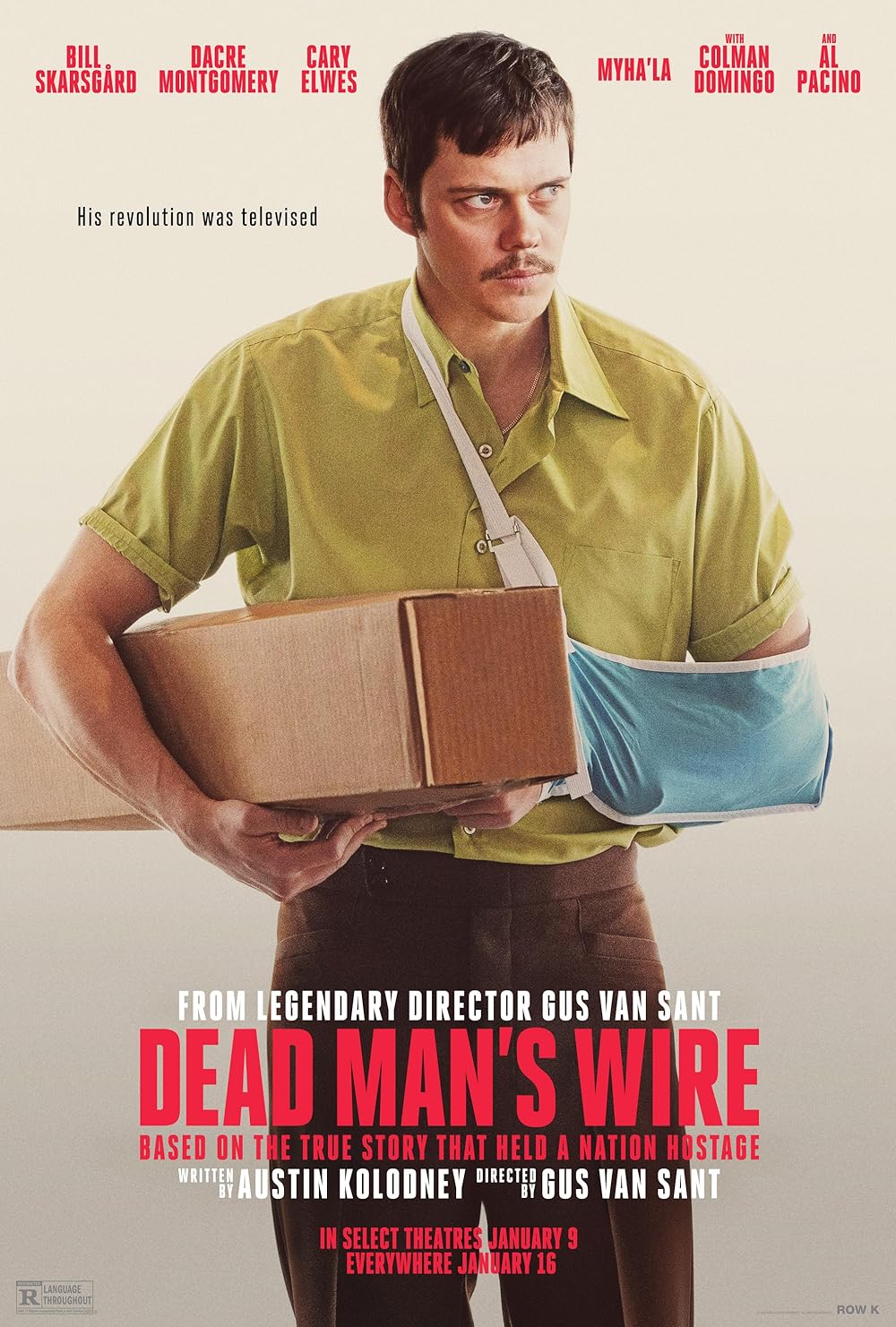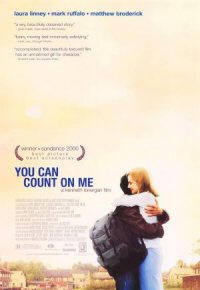|
New
Releases |
January 16, 2026



 |
January 9, 2026

 |
January 2, 2026


 |
December 26, 2025





 |
December 19, 2025


 |
December 12, 2025



 |
December 5, 2025






 |
|
|
|
Kramer vs. Kramer
(1979)
Directed by
Robert Benton

Review by
Zach Saltz
Posted - 1/24/10
Robert Benton’s
Kramer vs. Kramer
(1979) is
remembered today as a dated, late-1970s cautionary tale questioning the
legal partiality in family courts towards mothers in cases of child
custody.
Indeed, in the
climatic courtroom scene at the end of the movie, Ted Kramer, half of
the titular squabbling pair, asks boldly, “What law is it that says a
woman is a better parent simply by virtue of her sex?”
Although
Kramer vs. Kramer
contains more moments for the audience to sympathize with Ted rather
than his ex-wife, Joanna, the movie never really solves the question.
Ted
is shown as a
loving and caring father who considerably rearranges his life to ensure
the well-being and safety of his 7-year-old son, Billy.
In most cases involving custody of minors, the father has left
the mother.
In the case of
Kramer vs. Kramer, it is
Joanna who leaves her husband and son, and is absent for most of the
picture.
Thus, on the surface, Robert Benton’s film appears
to have little greater motivation than to simply prove that daddies can
be just as good as mommies as long as they occasionally put on an apron,
make some play dates with other tikes in the park, and mouth the lines
in the school play from across the front aisle that little Billy has
forgotten.
If this were
true of the film, it would qualify as a minor success; indeed, the
scenes of bonding between Ted and Billy
are
undeniably affecting, and
Dustin Hoffman and little Justin Henry deserve to be commended for
creating a compelling and realistic rapport between father and son.
But Benton and screenwriter Avery Corman are too
smart to make
Kramer vs. Kramer
that one-dimensional.
They know that in life, unlike the movies, characters are not always
good or always bad, but the best ones act in ways that try to make
others’ lives easier. At the beginning of the movie, Ted is presented to
be a hotshot graphic designer who favors a late-night drink with his
boss to coming home for dinner.
He justifies his addiction to work by repeating the phrase, “Someone
has to bring home the bacon.”
When Joanna (played by Meryl Streep) succinctly informs him that
she is leaving him, he is too busy making a call into the office to even
register what she has said.
When Ted pleads with her as she gets in the elevator to leave the
complex, she tells him that if she goes back into the apartment and
stays, she will someday jump out the window.
Domestic life is so suffocating and Streep is such a good actress
that suddenly leaving behind her husband and child seems like the least
she could do.
Ted at first is skeptical that Joanna has really
left.
“I never thought this
would happen to me,” he laments to his boss the next day.
Indeed, though Ted is presented as a good man who works hard and
provides a good home life for his family (though this is suddenly thrust
into doubt), his central flaw is one of self-absorption.
Through the course of the next hour of the movie, Ted loses all
traces of hubris and learns to be a selfless, caring father who stops at
nothing to provide for Billy in a way he never could before his wife
left him.
Work is put on
hold so that Ted can get home early to pick up his son from a party.
When Billy is injured at the playground, Ted runs him to the
hospital.
Like
Schindler’s List
and
The Lives of Others,
Kramer vs. Kramer
is
centrally concerned with the transformation of the seemingly inflexible
main character – a transformation that occurs slowly and steadily until
a crucial climatic moment when the character is asked to stand up for
what he really believes in.
By the time Ted affirms his beliefs later in the picture, there is no
question of his devotion to Billy over work; the only question that
remains, as Joanna fights for custody of her son, is whether Ted has
done enough to prove that he is the “superior” parent.
Of course, for a seven-year-old child, the concept that one
parent is more fit than the other is utterly absurd, and by the time the
trial begins, the audience starts to believe this too.
There are so many good scenes in
Kramer vs. Kramer
that it is
difficult to pinpoint the best ones.
There are two that I can think of that reveal the heart and soul
of both the movie and the motivations of Ted.
The first occurs when Billy tests the boundaries of Ted’s
patience by disobeying and devouring a scoop of ice cream for dinner.
A fight ensues, and Billy is left in his room sobbing.
Later, Ted comes back to the room and with Billy half-asleep,
reveals that Joanna left because of the way he tried to make her, not
because of Billy.
This is a
great moment of self-realization, and is illustrative of the amazing
lengths Ted has gone in understanding why his relationship with Joanna
has failed.
The second scene takes place when Ted, having been
fired from his job, frantically seeks to find employment during the
Christmas holiday.
The
desperation is present and the odds seemed to be stacked firmly against
him, but he shows no traces of this, coolly walking into a firm during
its Christmas party and offering his services in a “one-day deal.”
This is where Ted’s self-absorption appears to have come around
full circle; he is no longer concerned about mobilizing himself upwards
in his work, but only cares about having a job (even with a significant
pay cut) in order to fight for custody of his son.
Hoffman’s timing, subtle facial expressions, and firm grasp of
the situation reveal an actor at the top of his game in a masterful,
deserved Oscar-winning performance.
Indeed, the performances in
Kramer vs. Kramer
are
all-around excellent.
This
is not a movie of lengthy speeches or bouts of screaming directed
upwards towards the heavens, but of quiet, fleeting moments of nuanced
observation and attention.
Hoffman, Streep, and young Henry deeply embody each of the characters
they play, and the individual relationships between each of them are
real and utterly compelling.
Ted
and Billy gradually build a trust and love for each other that is never
broken even through myriad struggles.
The love between Billy and Joanna is clearly present even though
Joanna is not.
And Ted and
Joanna are only shown as a married couple for the first several minutes
of the film, but by the end, we know everything we need to about their
relationships.
Credit the
performers and the remarkable script for making all these things
possible.
All too often in movies about divorce, the stories
are not taken seriously and relegated to the naïve perspective of the
child.
In
Kramer vs. Kramer, Billy is
almost a secondary character, and even though Ted’s and Joanna’s
respective transformations and aggressive court battle are entirely
motivated by the parental concern of “what’s best for Billy,” Benton and
Corman are entirely motivated by examining what brings people to the
edge of desperation – so much to the point that they are forced to make
radical changes in their lives. Even the courtroom scenes, which could
have easily been plebian and melodramatic in the hands of inferior
talent, are handled with grace and subtlety.
After all, no couple ever wants to end up in court, and the
somber faces of Ted and Joanna illustrate regret and even a bit of
tenderness toward each other.
One of the most sincere moments of the film comes when Ted’s
belligerent attorney cruelly asks Joanna if she was a failure as a
parent and as a wife.
She
turns toward Ted, who smiles softly and gently shakes his head, mouthing
the word, “no.”
Such honest and unmanipulative moments reveal why
Kramer vs. Kramer
works so
well as a study of a broken family where isolated remnants of love still
remain, and of a man who learns to become the man he should have been
all along.
This is far more
than just a “divorce” movie – it is about living, transforming, and
losing faith only to have it restored again by acting squarely in
interests of those you love.
Rating:

|
|
New
Reviews |
Reactions to the Nominations

Written Article - Todd |
2026 Oscar Predictions: Final

Written Article - Todd |
Todd Most Anticipated #5

Podcast Featured Review |

Podcast Review - Todd |

Podcast Review - Terry |

Podcast Review - Zach |
10th Anniversary

Podcast Oscar Review - Terry |
Director Blindspot Watch

Podcast Review - Todd |

Podcast Review - Zach |
Ford Explorer Watch

Podcast Review - Adam |
2027 Oscar Predictions: Jan.

Written Article - Todd |
Terry Most Anticipated #2

Podcast Featured Review |

Podcast Review - Terry |

Podcast Review - Zach |
20th Anniversary

Podcast Oscar Review - Terry |
Ford Explorer Watch

Podcast Review - Adam |

Podcast Trivia Review - Adam |
Director Blindspot Watch

Podcast Review - Todd |

Podcast Trivia Review - Todd |

Podcast Trivia Review - Terry |
25th Anniversary

PODCAST DEEP DIVE |

Podcast Featured Review |

Podcast Review - Adam |

Podcast Review - Terry |

Podcast Review - Terry |
Indie Screener Watch

Podcast Review - Todd |
|
|
|